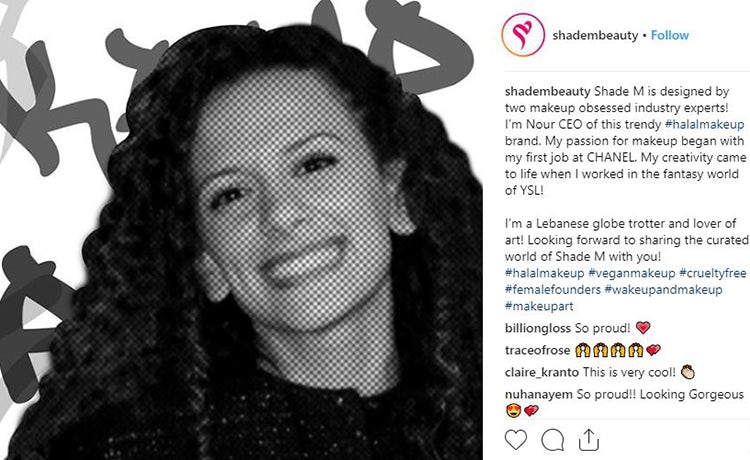The founders of soon to launch halal beauty brand Shade M are looking to move away from a tokenistic representation of Muslim women in order to truly connect with this fast growing consumer group.

Whether in fashion or beauty, all mainstream brands are underestimating the financial power of the Muslim community according to Jolie Nubani, co-founder of halal beauty brand Shade M.
“When we talk to people about targeting Muslims, people say, ‘oh, that’s great niche targeting’, but in reality it is the fastest growing religion and is one of the largest populations globally from a religious perspective,” she explains. “They have a lot of money to spend, so it’s actually a major gap people are missing by not targeting them more specifically.”
Backed by decades of marketing experience at global beauty brands such as Chanel, L’Oréal and Benefit, Nubani and her co-founder Nour Khalife saw in a gap in the market for a fashionable halal brand that appealed to the diverse spectrum of Muslim consumers, as well as other beauty fans globally.
Launching in the UK this June, Shade M will start with 16 shades of liquid lipstick, before rolling out a full range of beauty products. The manufacturing of Shade M’s lipsticks is halal compliant to avoid cross contamination, while all the ingredients are halal, vegan and cruelty free.
[Muslims] have a lot of money to spend, so it’s actually a major gap people are missing by not targeting them more specifically.Jolie Nubani, Shade M
The brand has been built on consultation, with Nubani and Khalife engaging modest fashion Instagram influencers in their ongoing product development. The aim is to go direct-to-consumer online to build credibility and desirability, before approaching high street retailers such as Selfridges or Boots.
“This brand should live in one of many of those spaces, so that the consumer doesn’t feel like they are being alienated and unable to go to the same place as everyone else, to purchase a product that suits them just as much as all the other brands on the shelf,” says Nubani.
The co-founders say their objective was not to create a brand exclusively for one segment of the population, but rather to design a product that would appeal to beauty consumers regardless of their cultural or religious beliefs. Furthermore, they are convinced that brands should move away from a tokenistic representation of Muslim women and work harder to reflect this demographic’s many different faces.
Anusha Couttigane, principal analyst for fashion EMEA at Kantar Consulting, echoes this opinion, reiterating that brands need to wake up to the significant Muslim community, the understanding of whom can only be improved by speaking to the consumer in a more constructive way.
From a financial perspective this is especially important, she adds, as with Brexit looming on 29 March brands will need to work harder to attract consumers both at home and beyond Europe.
“We need to be a lot more aware of what international demand is and what consumers from other continents and other cultures will need because we won’t always be able to be confined to the comfortable knowledge we have of the European market,” Couttigane concludes.



